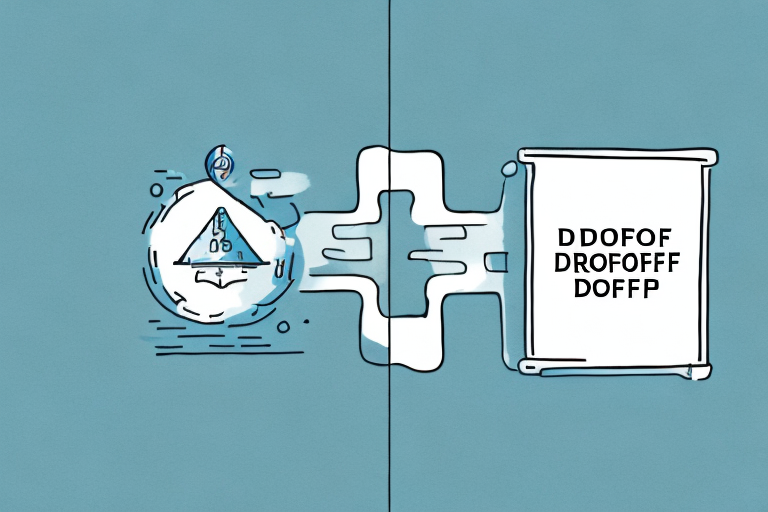The Benefits of Drop-Off Services for Businesses
In recent years, the concept of drop-off services has become increasingly popular among businesses of all sizes. Drop-off services involve a third-party provider collecting products or packages from a business and delivering them directly to the end customer. This article explores the benefits of drop-off services, including time and cost savings, improved efficiency, enhanced customer satisfaction, security benefits, and environmental advantages. We also discuss how to choose the right drop-off service provider, implement a successful strategy, and examine the future impact of drop-off services on businesses.
Time and Cost Savings with Drop-Off Services
Reducing Operational Costs
One of the most significant benefits of using drop-off services is the cost savings they offer. By outsourcing delivery needs to a third-party provider, businesses can avoid expenses related to maintaining their own delivery fleet, such as vehicle maintenance, fuel, and insurance. According to a 2023 logistics report, businesses leveraging third-party delivery services can reduce their operational costs by up to 30%.
Optimizing Delivery Routes
Drop-off service providers utilize advanced algorithms and data analytics to determine the most efficient delivery routes. This optimization not only saves fuel but also minimizes delivery times. Studies show that optimized routing can decrease fuel consumption by 15% and improve delivery efficiency by 25%.
Scalability and Flexibility
Drop-off services offer businesses the flexibility to scale their delivery operations based on demand. During peak seasons or high-demand periods, businesses can increase their delivery capacity without significant upfront investments. Conversely, they can reduce delivery costs during slower periods, ensuring cost-effective operations year-round.
Enhancing Customer Satisfaction and Convenience
Flexible Delivery Options
Drop-off services provide customers with the convenience of choosing where and when to pick up their packages. This flexibility is especially beneficial for customers with busy schedules or those residing in areas with limited home delivery options.
Improved Delivery Reliability
With professional drop-off services, businesses can ensure timely and accurate deliveries. Reliable delivery services lead to higher customer satisfaction and increased loyalty. Research indicates that 85% of customers consider delivery reliability as a key factor in their purchasing decisions.
Real-Time Tracking and Notifications
Modern drop-off services offer real-time tracking and notifications, allowing customers to monitor the status of their deliveries. This transparency enhances the customer experience by providing peace of mind and reducing uncertainty.
Operational Efficiency and Security Benefits
Streamlined Business Operations
Outsourcing delivery functions to drop-off services allows businesses to focus on core activities such as product development, marketing, and customer service. This streamlined approach leads to overall improved operational efficiency.
Enhanced Security Measures
Professional drop-off service providers implement advanced security measures, including GPS tracking, ID verification, and signature confirmation. These measures ensure that packages are handled securely, reducing the risk of theft, loss, or damage.
Reduction of In-House Theft
By entrusting deliveries to third-party providers, businesses can minimize the risk of in-house theft. This separation of duties enhances the security of products and builds trust with customers.
Environmental and Sustainability Advantages
Lower Carbon Footprint
Drop-off services often employ eco-friendly transportation methods, such as electric or hybrid vehicles, to reduce their environmental impact. Additionally, optimized delivery routes decrease the number of vehicles on the road, further lowering carbon emissions.
Sustainable Business Practices
Implementing drop-off services aligns with sustainable business practices, enhancing a company’s reputation as an environmentally conscious organization. Consumers are increasingly favoring businesses that prioritize sustainability, which can lead to greater market appeal.
Choosing the Right Drop-Off Service Provider
Evaluating Provider Reliability and Coverage
When selecting a drop-off service provider, it is crucial to assess their reliability and coverage area. Ensure that the provider has a robust network capable of meeting your delivery needs across different regions.
Assessing Pricing and Services Offered
Compare pricing models and the range of services offered by different providers. Look for flexible pricing options and customizable services that align with your business requirements and budget.
Technology and Integration Capabilities
Choose a provider with advanced technology capabilities, such as real-time tracking and seamless integration with your existing systems. This ensures efficient management of deliveries and enhances the overall customer experience.
Implementing a Successful Drop-Off Service Strategy
Defining Clear Goals and Objectives
Start by outlining your business goals and how drop-off services can help achieve them. Whether it's reducing delivery times, cutting costs, or improving customer satisfaction, clear objectives guide your strategy.
Training and Communication
Ensure that your team is well-informed about the drop-off service processes. Effective training and clear communication are essential for smooth implementation and operation.
Monitoring and Evaluation
Regularly monitor key performance indicators (KPIs) such as delivery times, customer satisfaction levels, and cost savings. Use this data to evaluate the effectiveness of your drop-off service strategy and make necessary adjustments.
The Future of Drop-Off Services in Business
As technology advances and customer expectations evolve, drop-off services will continue to play a critical role in business operations. Innovations such as autonomous delivery vehicles and enhanced data analytics are set to make drop-off services even more efficient and reliable. Businesses that adopt and adapt to these advancements will be well-positioned to meet future demands and maintain a competitive edge in the market.
Conclusion
Drop-off services offer a multitude of benefits for businesses, including significant time and cost savings, enhanced customer satisfaction, improved operational efficiency, robust security measures, and positive environmental impacts. By carefully selecting the right service provider and implementing a strategic approach, businesses can leverage drop-off services to drive growth and achieve long-term success. As the landscape of delivery services continues to evolve, staying informed and adaptable will ensure that businesses can effectively utilize drop-off services to meet their goals.



















